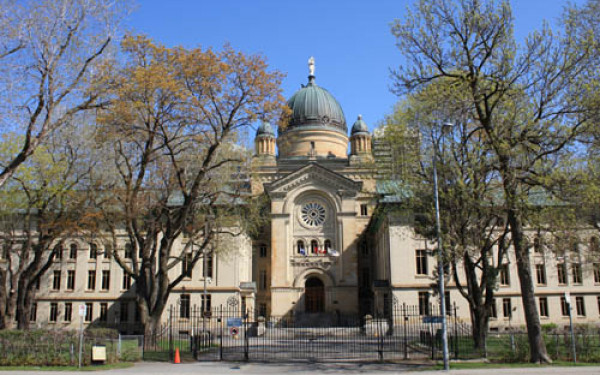A Year of Petitions, 170,000 Students at Risk, the CFS Looks to Stop the Loss
Windsor Students Look to Quit National Student Lobby Despite Tough New Rules
A year after the first petitions were printed at 14 universities across Canada to leave the Canadian Federation of Students, a national lobby group that many felt was ineffective and interfering in local student politics, no university has successfully left.
Five referendums held at universities that had successful petitions were not recognized as legitimate by the CFS—under the Federation’s bylaws, the CFS must agree to the referendum question and date. The CFS never gave its consent to the votes.
The only referendum allowed to stand was held at the one student body that voted to stay: the Alberta College of Art and Design.
The University of Regina Students’ Union has been promised a referendum in October; however, the legality of the promised vote has already been called into question.
Six universities are currently in limbo, having submitted legal petitions while receiving no dates to bring a referendum to the student body.
Only one university of the 14, Kwantlen University, never submitted a petition.
How did the CFS react to the attempts to leave the Federation? They made leaving harder.
James Coccola, the chairperson for the University of Victoria Students’ Society, was at the CFS’ Annual General Meeting in Ottawa from May 22 to 25.
“My board sent me to oppose motions that we felt made the referendum process more difficult,” said Coccola. “We tried to stop further changes to the referendum rules because its gotten to the point where it’s next to impossible to hold a referendum under the rules the CFS has.”
The UVSS went to Ottawa to stop five motions: a ban on online referendums, the doubling of quorum for a referendum vote to 10 per cent of the student population, the doubling of petition signatories to 20 per cent of the student population, the approval of counter-petitions, and new rules that required more personal information from petition signatories.
All the motions passed.
“There weren’t a whole lot of debates because schools like Concordia and McGill were not there,” said Coccola.
After Concordia’s undergraduate and graduate students voted with McGill’s graduates to leave the CFS at their general elections in late March and early April, the student delegations from both universities were not welcome at the CFS Annual General Meeting.
“As it stands, the rules to enter the organization are much easier than the rules to leave,” said Coccola, pointing out that only five per cent of students need to vote to join the CFS.
After a petition from undergraduate students at the University of Victoria was submitted to the CFS in Fall 2009, the CFS refused to provide the student union with a referendum date.
Coccola said he was now concerned that the rules he flew to Ottawa to oppose could be used against him.
“We should not be following any rules that were put in after our petition passed, but I fear that they will try to impose the rules,” said Coccola.
With the new rules in place, the possibility of new petitions being considered and approved is remote.
“If I was a new school looking to hold a referendum, it would be an ominous task to follow everything they have laid out. It would actually be next to impossible,” said Coccola.
“It’s incredibly antidemocratic,”
—Robert Woodrich,
UWSA’s VP University Affairs
The University of Windsor Students’ Alliance is currently facing the impossible.
Students at Windsor will begin a defederation campaign in September by collecting signatures for a petition. They will be the first university to operate under the new rules.
“I think that the rules are absurd,” said Robert Woodrich, UWSA’s VP University Affairs. “At a school like Windsor it is very difficult, almost prohibitively so, to collect signatures from 20 per cent of students.”
The stricter rules approved at the CFS AGM in May were given added weight when the Ontario component of the national lobby group approved nearly identical rules at its own AGM in late March.
“Everything passed as proposed and almost always they were basically a reflection of what was passed at the last national meeting,” said Woodrich. “The justification was that this is only housekeeping, we are only changing our bylaws to reflect the national bylaws.
“However, the Ontario component is not beholden to the national component and it can have dissimilar bylaws.”
A commuter school without large gathering areas, the bulk of the University of Windsor petition’s signatures were to be gathered during Welcome Week when large numbers of students were on campus. That cannot happen due to the new rules.
“The only uncertainty surrounds the referendum question itself,” said Woodrich. “Unfortunately, because CFS-O just changed its bylaws we don’t know which referendum question they will allow to be asked.
“I have a feeling they won’t provide their updated bylaws until after our Welcome Week,” said Woodrich, adding that it was a political game.
“CFS does nothing on our campus except for undermine our stance on many issues. All we want to do is leave.We don’t wish harm on any other student bodies, we just want out. They are making that very hard for us,” Woodrich continued.
This article originally appeared in Volume 31, Issue 03, published August 31, 2010.




_.final_._jpg__600_375_s_c1.png)
__600_375_90_s_c1.jpg)
